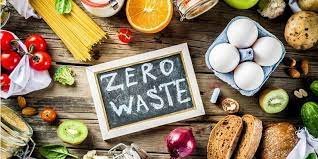In an era where sustainability is more than a buzzword, the kitchen emerges as a pivotal battleground in the fight against waste. Zero waste cooking is not just an ethical choice; it’s a practical approach to minimizing our environmental footprint while maximizing our resources. This guide explores how you can transform your kitchen into a waste-free sanctuary, where every ingredient is utilized, and nothing is squandered.
Understanding Zero Waste Cooking
Zero waste cooking is the practice of using food products in their entirety, thus minimizing the amount of food and packaging waste sent to landfills. It involves thoughtful purchasing, efficient food storage, creative recipe adjustments, and composting organic waste. The goal is not just to reduce waste but to integrate a sustainable mindset into our daily cooking routines.
Start with Planning and Purchasing
The journey towards zero waste cooking begins before food even reaches your kitchen. Planning your meals and shopping with a list can significantly reduce impulse buys that often end up as waste. Opting for bulk purchases using your own containers, choosing produce without plastic packaging, and selecting imperfect fruits and vegetables are all effective strategies to minimize waste at the source.
Embrace Whole Ingredient Cooking
One of the cornerstones of zero waste cooking is utilizing every part of the ingredient. This means finding creative ways to use peels, stems, leaves, and bones that are traditionally discarded. Vegetable scraps can be transformed into hearty stocks, fruit peels can be turned into zest or infused vinegars, and meat bones can be used for rich broths. Learning to see these „waste“ materials as resources is key to waste-free cooking.
Efficient Food Storage
Proper food storage is crucial in extending the life of your ingredients and preventing waste. Investing in airtight containers, using beeswax wraps instead of plastic, and understanding the best storage methods for different types of produce can dramatically reduce spoilage. Additionally, regularly organizing your fridge and pantry ensures that you’re aware of what you have and what needs to be used up, minimizing the chances of forgotten ingredients going bad.
Composting Organic Waste
Even with meticulous planning and creativity, some waste, like coffee grounds or eggshells, is inevitable. Composting these materials can turn potential waste into nutrient-rich soil, closing the loop in a sustainable kitchen ecosystem. Whether you have a backyard or a small apartment, options like bokashi bins or worm composting systems make composting accessible to everyone.
Cultivating a Zero Waste Mindset
Zero waste cooking is as much about mindset as it is about practical steps. It requires a shift in perspective, seeing value in what we traditionally consider waste and being open to experimentation and learning. Sharing meals, swapping ingredients with neighbors, or donating excess food are all ways to extend the principles of zero waste beyond your kitchen.
Conclusion
Achieving a zero waste kitchen is a gradual process that requires commitment, creativity, and a willingness to change our habits. While it might seem daunting at first, the rewards—both environmental and personal—are immense. By adopting zero waste cooking practices, we not only contribute to a more sustainable planet but also rediscover the joy and artistry of cooking, where every ingredient is cherished, and nothing is taken for granted.




